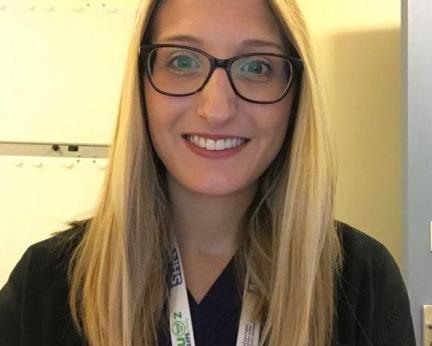As I specialise in gastrointestinal (GI) physiology and urodynamics, my work is split between the GI physiology department and the urology department.
Whichever department I’m working in I usually spend the first half-hour dealing with emails and other admin work. In GI physiology we conduct a range of different investigations and treatments, including upper and lower GI function tests, sacral nerve stimulation and biofeedback.
A typical GI function test is oesophageal manometry, where the strength and coordination of muscles in the oesophagus (food pipe) are assessed. In this investigation a thin pressure sensitive catheter is passed up the nose, down the back of the throat and down the oesophagus into the stomach. The patient is asked to take small sips of water through a straw, and the pressure throughout the oesophagus can be monitored.
In urology a typical morning might consist of an ambulatory urodynamic study to assess bladder function, which is conducted under the supervision of a nurse specialist. During an ambulatory study the patient is connected to a device for three hours and they are able to move around the hospital. When this is finished I usually deal with more emails and phone calls before I take a short lunch break.
The afternoons in GI physiology are typical spent analysing test results and writing up reports. In urology I might spend the afternoon assisting with a video urodynamics study in the radiology department, where images of the bladder are taken using x-ray.
The work is incredibly varied, involving a wide range of investigations and treatments and many different patients. I work alongside doctors, nurses, radiographers, physiologists, clinical scientists, apprentices and admin staff.





